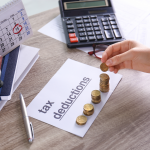Introduction to VAT in the UK
Value Added Tax (VAT) is a crucial component of the UK tax system, applied to the sale of goods and services. As a consumption tax, it is paid by the end consumer, but collected and remitted to HM Revenue and Customs (HMRC) by businesses. Understanding VAT is essential for all business owners, financial professionals, and tax consultants operating within the UK.
VAT Registration
Criteria for VAT Registration
Businesses must register for VAT if their taxable turnover exceeds the £90,000 threshold over a rolling 12-month period. However, businesses can also choose to register voluntarily if their turnover is below this threshold, a decision that can enhance credibility and allow the recovery of VAT on costs.
The Registration Process
To register for VAT, businesses must complete an online application through the HMRC website. During this process, they need to provide details about their business and estimated VAT taxable turnover.
Tips for Smooth Registration
- Ensure all business information is accurate and up-to-date.
- Prepare to keep detailed records of all sales and purchases.
- Consider consulting with a tax professional to assist with the registration process.
VAT Compliance
Compliance with VAT requirements involves several critical steps:
- VAT Returns: Businesses must submit VAT returns usually every quarter. These returns detail the amount of VAT charged to customers and the VAT that the business has paid on its own purchases.
- Record-Keeping: Maintaining comprehensive records of all taxable sales and purchases is mandatory.
- Deadlines: VAT returns and payments are due one month and seven days after the end of the VAT period.
VAT Rates and Exceptions
The standard VAT rate in the UK is 20%, applicable to most goods and services. However, there are reduced rates and exceptions:
- Reduced Rate: Some goods and services, such as home energy, are taxed at 5%.
- Zero-Rated: Items like most food and children’s clothing are zero-rated, meaning VAT is charged at 0%.
- Exemptions: Certain goods and services, like education and health services, are exempt from VAT.
VAT Optimization Strategies
To legally minimize VAT liabilities, businesses can employ several strategies:
- Reclaiming VAT on Purchases: Ensure you are reclaiming VAT on all eligible business expenses.
- Timing of VAT Payments: Timing purchases and VAT submissions can impact cash flow and savings.
- Using the Flat Rate Scheme: Small businesses might benefit from this scheme, which simplifies the calculation of VAT payments by applying a fixed rate by sector to the turnover.
Common VAT Mistakes and How to Avoid Them
Frequent pitfalls include:
- Inaccurate VAT Returns: Always double-check calculations and ensure all transactions are recorded.
- Late Submissions and Payments: Implement reminders and processes to ensure timely compliance.
- Misclassification of Goods and Services: Understand the correct VAT rates for all goods and services you deal with.
Leveraging Technology for VAT Compliance
Several software solutions can help manage VAT compliance effectively:
- Accounting Software: Programs like QuickBooks, Xero, and Sage provide robust platforms for tracking income, expenses, and VAT.
- Specialized VAT Software: Tools like Avalara or TaxJar offer specific features for VAT calculation and reporting, especially useful for businesses dealing with international transactions.
Case Studies
Case Study 1: Tech Solutions Ltd
Tech Solutions Ltd utilized the Flat Rate Scheme to simplify their VAT calculations, resulting in significant administrative time savings and reducing errors in their VAT filings.
Case Study 2: Gourmet Street Food Inc
By registering for VAT voluntarily before reaching the threshold, Gourmet Street Food Inc was able to reclaim VAT on initial startup costs, enhancing their cash flow in the critical early stages of the business.
Conclusion
Navigating VAT in the UK can be complex, but with the right strategies and tools, businesses can achieve not only compliance but also significant financial advantages. By understanding the intricacies of VAT registration, compliance, and optimization, UK businesses can improve their operations and financial health.
Effective VAT management involves staying informed about current regulations, meticulous record-keeping, and strategic financial planning. For the latest information and detailed guidance, visiting the HMRC website is advisable. Additionally, consulting with a tax professional can provide tailored advice and ensure that your business meets all its VAT obligations while maximizing potential savings.
For businesses looking to streamline their VAT processes or understand more about the impact of VAT on their operations, consulting with a VAT expert or utilizing specialized accounting software can provide significant benefits. Don’t hesitate to reach out to a professional to discuss strategies tailored to your business’s specific needs.







